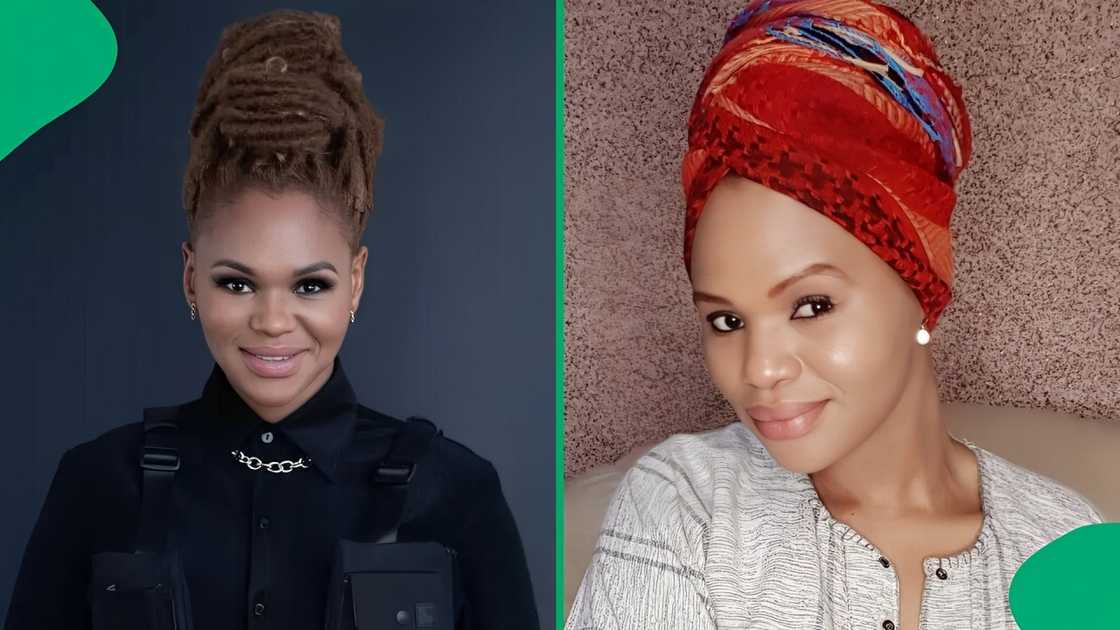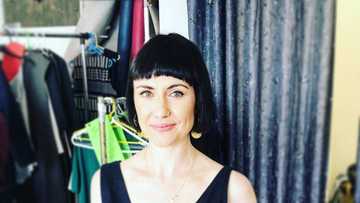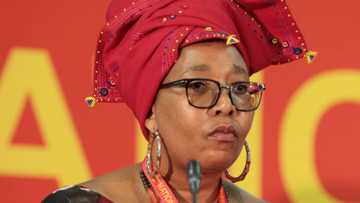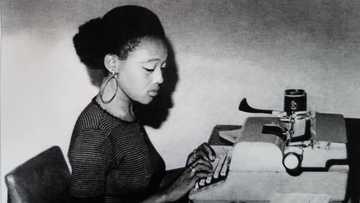SA’s Leading Voice: Thando Gumede on 16 Days of Activism and Being Appointed by Cyril Ramaphosa
- Thando Gumede wears many hats and continues to prove to society why it’s important for women and young people to take up space
- From being a curious young student in Soweto to one of the nation's leading voices for gender-based violence and human rights, Thando continues to inspire and uplift many
- Speaking to Briefly News, Thando Gumede shared her life journey and what it was like being appointed by President Cyril Ramaphosa

Source: Original
Thando Gumede's early life
Born in Lisedi Private Hospital in a township in the City of Gold, Gumede had no idea she was destined for greatness. She was raised on the south side of Johannesburg and expressed her passion for science, and public speaking began during her early life.
She attended Meadale Primary School and Monjo High School, where she began to shape her passion for problem-solving at a tender age. At 13 years old, in Grade 8, her career started to take shape when she entered her first science competition through the Eskom Expo for Young Scientists.
Passionate about changing the world around her, her project focused on alternative sources of energy that could help power homes. She wanted society to avoid using fossil fuels and "reduce the burden of power generation in our society."
Although she did not win, Thando found inspiration in the work of her peers, which became a pivotal moment in her career, setting the stage for years of scientific inquiry and social activism:
"Seeing my peers from all over the province competing and sharing thoughts and ideas, I was awestruck. Ever since then, I've been driven to use innovation and scientific thinking to solve the most crucial problems of our time."
Her achievements throughout her school life were nothing short of impressive. She was awarded a bronze medal in the regional competition for redesigning a shuttlecock and bagged a silver at the national level. Her determined spirit caught the eyes of the media, where she was later scouted by a television show where she presented a concept called the GT dynamic on a science TV show called Knock Knock.
Although she did not become a professional badminton and biomedical engineering athlete, Thando quickly saw that social change and entrepreneurship were her calling. She created a device to reduce household power consumption and a safe bar soap for women’s health. Her work earned regional and national accolades, including the Danal Aviation Prize.
Championing women’s rights
As she thrived in science, the human rights defender fostered her passion for public speaking. From a young age, she participated in public speaking competitions and wrote about the daily issues humans face.
By Grade 4, she had already won her first public speaking contest, and her interest in societal issues only deepened as she grew older. Debating topics such as women’s rights and gender equality, she developed a keen sense of the struggles faced by women in South Africa and the need for systemic change.
Thando, a graduate of the University of the Witwatersrand, was recognised for her commitment to gender inequality and social justice throughout her life on campus. She was awarded the Allan Gray Orbis Foundation scholarship, which helped her further her studies and develop leadership roles in student politics.
In 2016, she co-founded an organisation addressing gender-based violence on university campuses, focusing on barriers preventing girls and women from accessing education, mainly due to the lack of menstrual health products.
While speaking about being appointed by South African President Cyril Ramaphosa as a national commissioner for gender equality, the 2024 Forbes Woman Africa Social Impact Award Winner expressed that she felt "honoured."
"I feel honoured because I fundamentally believe that we're ready. As young people, we are ready. There's so much hesitation about the number of degrees a person needs to have to qualify to lead but bear in mind that many of the people who we see as icons and leaders didn't have the qualifications that we now have.
"They led first and got the qualifications later; many of them, or some of them, were leading whilst learning. You know? So, I feel that I have a tremendous responsibility to demonstrate to other young people that we are ready. We are ready to take on the baton. We are ready to lead the country, and we must lead the country," she added.
Thando on why 16 Days of Activism is important
Gumede believes that 16 Days of Activism is fundamentally based on erasure being a "weapon of mass destruction."
"One of the biggest weapons of patriarchy is the erasure of history, the erasure of what has happened over time, the erasure of patriarchy's accountability and contribution to how violent our society is. And so, you know, people may argue that 16 days shouldn't be 16 days. It should be 360."
Thando agrees with human rights defenders advocating for a 360-day campaign against gender-based violence. She also touched on the importance of 16 Days of Activism, which are dedicated to remembering women who were killed for fighting against patriarchal systems and the many other women and children who continue to be violated.
Government to strengthen protection for women and children
Thando emphasised the need for a complete overhaul of South Africa's laws to combat gender-based violence and promote gender equality. She argues that many laws are harmful and enable such violence, particularly among young children. She suggests harmonising laws like the Criminal Procedure Act and related legislation.
"At one point, certain women were not considered as being raped when they were raped. And so it then makes sense that the laws are just so discombobulated," she said.
Thando says the most significant challenge in protecting women and children in South Africa is the lack of leadership crisis, as the country's political landscape has not fully recognised the value of interventions created in 2017.
She went on to explain that the Department of Women has not invested in these interventions since 2017, hence the lack of access to resources from the public sector and private sector for women, particularly black women.
"This lack of capital is a sign of a leadership crisis, as black women have the least access to capital in the country. To overcome this, it is crucial to be honest about the issues and hold the private sector accountable. For example, in 2019, protesters marched against the JSC to shut down Centene, advocating for a 2% tax levy against large companies that use their labour to fund gender-based violence."
From 25 November to 10 December, people need to understand that gender-based violence is a gross human rights violation and must be eradicated in our lifetime, she says.
"We have no time to wait for equity amongst the sexes, and we can achieve this by intentionally committing to fighting gender-based violence and femicide."
Rachel Kolisi gets emotional in 16 Days of Activism video
Briefly News previously reported that as part of the 16 Days of Activism, Rachel Kolisi's Kolisi Foundation is making a meaningful impact by giving back to the community through a special project.
Rachel became emotional after witnessing the dedication and resilience of the women involved in the initiative. In a recent Instagram post, the Kolisi Foundation showed app users a video of Rachel entering a room of women working behind a sewing machine.
Source: Briefly News






